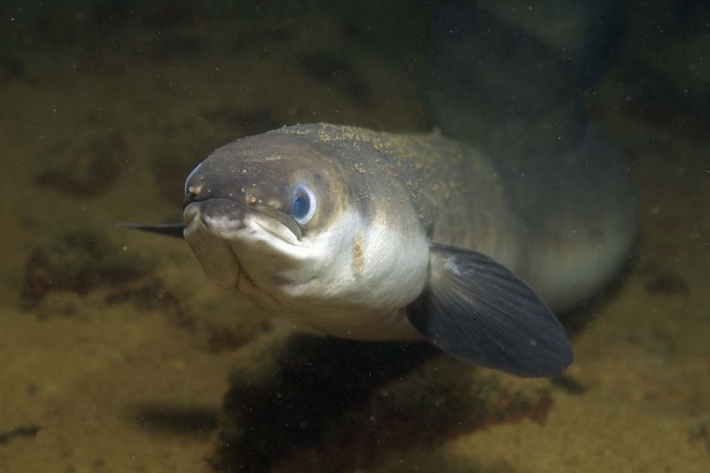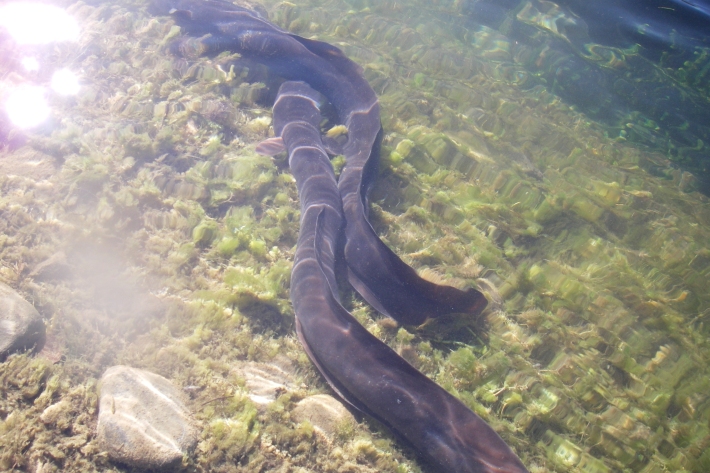-

Tuna - acknowledgements
Since NIWA was established as a Crown Research Institute in 1992, the organisation has been fortunate to receive funding to undertake research that continues to increase our understanding of a fascinating and incredibly important taonga freshwater fish. -

Tuna - solutions for restoration and enhancement
Shortfin and longfin eels are an important resource from both a human/cultural use and biodiversity perspective. -

Tuna aquaculture - international
Worldwide production of eels is estimated to be worth over $US 1 billion annually, with 233,589 tonnes of eel produced each year. -

Tuna - barriers to migration
One of the greatest threats to indigenous fish species which follow a catadromous life cycle (i.e., starting life at sea but then migrating into freshwater) are barriers that prevent or delay migrations between freshwater and marine environments. -

Tuna - loss of habitat
Much of the habitat that was formerly available to eels has been lost through practices like the wetland drainage and river channelling. -

Tuna - pressures on New Zealand populations
Freshwater eel populations around the world are in steep decline. -

Tuna - growth
New Zealand longfins are one of the largest eel species in the world. -

Tuna - biology and ecology
Freshwater eels have an unusual life cycle which sees them travelling between the ocean, estuaries and freshwaters. -

Customary fisheries management tools
Examples of customary fisheries management tools.
